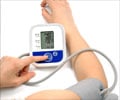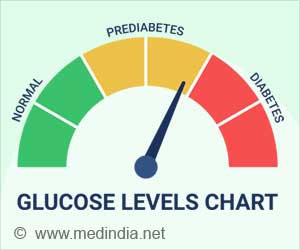A recent study shows that exercise training has been shown to reduce stress-related blood pressure responses.
- Stress has been associated with an increased risk of high blood pressure and cardiovascular diseases
- A recent review shows that regular exercise can reduce stress-related high blood pressure //
- The findings are especially helpful for people who are already hypertensive and over the age of 35 years old, however, further research is recommended
Exercise training improves blood pressure reactivity to stress: a systematic review and meta-analysis
Go to source).
TOP INSIGHT
A new study highlights how working out can lower stress-related blood pressure. So, what are you waiting for? Get moving! #exercise #BP
The Relationship Between Stress and Blood Pressure
Everyday life is full of physical, mental, and emotional stimuli, all of which have been shown to have a significant impact on our internal stability known as homeostasis. Previous research has looked into the effects of stressors on the cardiovascular system. Variations in blood pressure caused by stress have been discovered as indicators of future hypertension, accelerated aging, and cardiovascular trauma.Stress is a multifaceted conflux of events that endanger homeostasis. Physical and emotional stressors, according to research, may cause higher blood pressure by hormonal, neural network, or autonomic system changes.
Can Working Out Protect You From Stress-Related Heart Problems?
Exercise training is frequently prescribed as a non-pharmacological remedy for high blood pressure, with recent research indicating decreased peak BP reactivity following workouts (acute exercise).However, research on non-aerobic exercise and the impact of physical fitness (prolonged exercise training) on BP responses to stress is lacking in the literature. The current study attempts to bridge these information gaps by investigating whether exercise training can have benefits similar to acute exercise using a meta-analytic technique. Can regular and routine exercise be utilized not just as a post-stress therapy but also as a preventive intervention against the cardiovascular effects of stressors?
Researchers began by scanning five internet databases, finding 5,058 publications that met their fundamental exercise and blood pressure monitoring requirements. These publications were reviewed, and the final dataset consisted of 23 full publications and one conference abstract.
Independent researchers reviewed all papers in duplicate. The meta-analyses included 1,121 people who were recommended to do moderate to high-intensity exercise for six to 52 weeks. The exercise lasted an average of 50 minutes and was done three to four times a week. The male-to-female patient ratio was 1.65:1. Almost 22% of individuals were hypertensive, 61% were normotensive, and the rest were unclassifiable due to study-specific missing data.
Take Home Message: Exercise is Great for your Body
Aerobic training was the most commonly prescribed exercise mode, with 21 of the 23 researchers mentioning it. Resistance training (five studies), yoga (two studies), and isometric handgrip training (one study) followed. The almost universal take-home message from all research was that exercise is good for you - 10 studies revealed substantial reductions in diastolic blood pressure (DBP), nine in systolic blood pressure (SBP), and one in mean blood pressure reactivity. Only one study discovered a link between DBP and yoga.The arithmetic task was the most frequently utilized stressor in these experiments, which the authors warn against because it does not adequately reflect daily pressures.
Exercise Training Decreases Systolic Blood Pressure
According to meta-analyses, 64% of research revealed that exercise training reduced SBP or DBP. Compared to research that measured and reported fluctuation in baseline BP, which had no effect, those that demonstrated peak stress linked with SBP-elucidated exercise had moderately beneficial results.Despite these findings, lowering blood pressure is critical due to its link to the risk of future cardiovascular harm, including stroke. Physical stressors were demonstrated to act via arteriolar vasoconstriction, indicating that exercise can have variable anti-stress effects depending on the type of stressor. A mental stressor, on the other hand, would result in no change in blood volume but large changes in heart rate, pulse rate, and pressure.
Previous research has demonstrated that differences in patient's familiarity with the tests, self-efficacy, and the time after exercise that readings are recorded can cause significant heterogeneity in results. Additional research on diverse stressor modes, non-aerobic exercise studies, and standardized test methodologies could assist advance this discipline.
Unlike prior studies, the current study found no strong connections between age, socioeconomic status, gender, and the advantages of exercise. While lower age groups had no influence compared to older age groups, differences across more senior age classes were minor. In addition, compared to earlier research, this study demonstrated more significant changes in female stress response BP post-exercise.
Finally, despite the fact that there has been little research comparing trends in hypertensive versus normotensive patients, the current study identified the strongest evidence for exercise effects in these at-risk individuals. Hypertensive people were discovered to have lower cardiac output and more substantial vasculature than normotensive people. Future research should look into the relative contributions of exercise and antihypertensive medicines.
The evidence presented in this meta-analysis demonstrates that aerobic exercise can reduce systolic blood pressure responses to lab-based stress tests. These findings are especially noteworthy for people with a history of hypertension and those over the age of 35. Despite the fact that it is limited to secondary data, this study serves as the foundation for future research.
Reference:
- Exercise training improves blood pressure reactivity to stress: a systematic review and meta-analysis - (https://www.nature.com/articles/s41598-023-38041-9)
Source-Medindia
 MEDINDIA
MEDINDIA





 Email
Email










